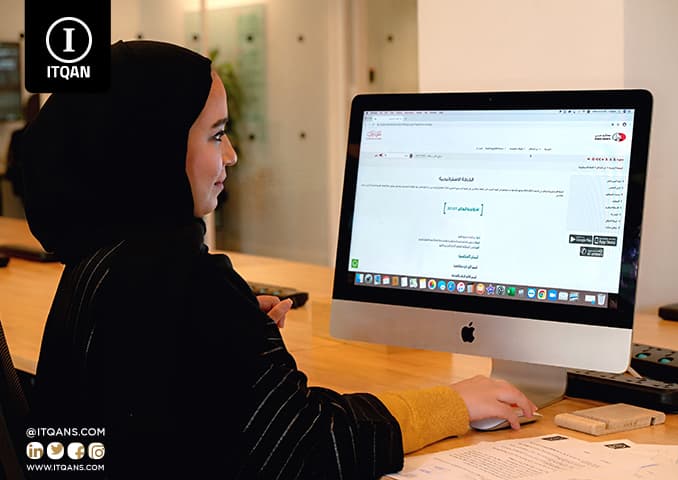Establishing a company in Dubai is considered a vital strategic step for many international entrepreneurs and investors. Dubai is one of the most prominent business destinations in the world, thanks to its thriving economic environment, advanced infrastructure, and strategic location linking the markets of the Middle East, Asia, and Africa. Providing a wide range of free zones and economic zones, Dubai offers multiple options to suit different types of businesses and commercial activities.
Dubai offers countless benefits to new businesses, from tax incentives and customs exemptions, to facilitating licensing and registration procedures. The legal and regulatory environment in Dubai includes an advanced framework that includes transparent laws and regulatory mechanisms that enhance the ease of starting and operating a business. Dubai also provides a world-class infrastructure that includes modern offices, integrated logistics facilities, and an advanced transportation network, which contributes to achieving the highest levels of operational efficiency.
Expanding into Dubai is a great opportunity for companies looking to penetrate new markets and increase their growth. By exploiting the advantages that Dubai offers, companies can establish their presence quickly and efficiently, and benefit from the attractive investment environment that supports innovation and growth. In this article, we will review the basic steps and procedures necessary to establish companies in Dubai , with a focus on how to take advantage of the advantages and facilities provided by the city to achieve success and prosperity in the business world.

جدول المحتوى
ToggleEstablishing companies in Dubai in 3 steps
Establishing companies in Dubai can be summarized in three main steps:
- Choosing the type of company and preparing documents:
Determine the type of company you wish to establish, such as a limited liability company (LLC), a company wholly owned by foreigners, or a company in a free zone.
Collect and prepare necessary documents such as passports, security clearances, proof of address, and rental contracts.
- Submitting an application and obtaining licenses:
Submit an application for establishment to the Dubai Economic Department or the relevant authority in the free zone. The application includes basic information about the company, such as trade name and business activity.
Obtain the necessary licenses and permits. You may need commercial, health, or industrial licenses depending on the type of activity.
- Registering the company and setting up bank accounts:
Officially register the company, including registering it with commercial registers and updating its details.
Open a company bank account at a local bank. This requires submitting company-specific documents, such as a business license and lease contracts.
Documents required to establish a company
The documents required to establish a company vary based on the type of company, location, and business activity. But in general, the basic documents you may need to establish a company in Dubai include :
- Incorporation application: The incorporation application form designated by the authority responsible for registering companies.
- Personal identification: copies of passports of owners and executives. Some authorities may require the submission of notarized or translated copies.
- Resume: Detailed biographies of the owners and executives, including their professional and educational backgrounds.
- Business Plan: A detailed business plan that outlines the company’s goals, market strategy, financial projections, and operational plans.
- Lease Contract: A lease contract for an office or commercial space, stating the location, area, and terms.
- Notarized Signatures: Notarized signatures of owners and executives on required documents.
- Corporate certificates: Certificates of registration of the parent company if there is a subsidiary, or previous certificates of incorporation if there are branches or representative offices.
- List of shareholders and directors: A list of shareholders and directors with contact details and personal information.
- Financial documents: Financial documents indicating the current financial position of the parent company or major shareholders, if appropriate.
- Insurance: Required insurance documents, such as general liability insurance and property insurance.
- Special Permits: Any special permits that may be required based on the type of business, such as regulatory permits or special licenses.
- Trade name approval: Proof of the competent authorities’ approval of the company’s proposed trade name.

Types of companies that can be established in Dubai
Here is a table showing the types of companies that can be established in Dubai with a brief description of each type:
| Company type | Description |
|---|---|
| Limited Liability Company (LLC) | Limited Liability Company; It can be owned by one entity or several partners, with limited liability for debts. |
| Public Joint Stock Company (PLC) | Public joint stock company; It can list its shares on a stock exchange and raise capital from the public, requiring a large number of shareholders. |
| Private Joint Stock Company (Private Ltd) | Private joint stock company; It is managed by a limited number of shareholders and its shares are not traded on a stock exchange. |
| Branch Company | A branch of an international company, which can operate under the name of the parent company and carry out the same business activity. |
| Limited Liability Company by Shares (LLP) | LLC limited by shares; It combines the characteristics of limited liability companies and joint stock companies. |
| Partnership company | business partnership; It can include a general partnership or a limited partnership, where the partners share liability and profits. |
| Sole Proprietorship | A company is wholly owned by one person, and the owner bears full responsibility for all of the company’s debts and obligations. |
| Representative Office | representative office; It can only carry out promotional and research activities, and cannot engage in direct commercial activities. |
Each of these types of companies has special benefits and requirements, and the legal framework, taxes and registration obligations may differ based on the type and activities.
The cost of establishing a company in Dubai
Establishing a company in Dubai requires a range of expenses that can vary significantly based on the type of company, size of activity, and location. In general, the main costs include:
- Registration and licensing fees: These include fees for registering the company and obtaining a commercial license, which depend on the type of company and the sector in which it operates.
- Office Rent: The cost of renting an office or commercial space, which depends on the location and facilities provided.
- Insurance: Required insurance fees, such as public liability insurance and property insurance.
- Legal and administrative fees: Legal and administrative consulting costs for preparing documents and ensuring compliance with local regulations.
- Visas and Licenses: Expenses for obtaining work and residency visas for employees and investors.
- Operational costs: include daily expenses such as salaries, utility bills, and office supplies.
At the conclusion of our article on establishing companies in Dubai , it becomes clear that Dubai remains one of the most attractive destinations for business globally. The city provides an ideal investment environment thanks to its strategic location, advanced infrastructure, and the diversity of free zones that support various commercial activities. With a variety of options available, from free zones to commercial and financial zones, investors can find the optimal environment that suits their needs and ambitions.
Dubai is characterized by fast and flexible company establishment procedures, making it easier for entrepreneurs to start their projects efficiently. In addition, the city provides tax incentives and customs exemptions, which contribute to reducing costs and increasing profitability. Dubai’s commitment to developing modern infrastructure and enhancing the business environment by providing multiple support services contributes to strengthening its position as a preferred investment destination.
Moreover, being in Dubai means access to a wide network of global markets, giving companies the opportunity to expand their business and expand into new markets. The city also provides a range of facilities and services that support corporate operations, including legal and administrative support, making the process of establishing and managing a business smoother.
The most important frequently asked questions about establishing companies in Dubai
Can foreigners fully own a company in Dubai?
Yes, foreigners can fully own companies in free zones or by establishing limited liability companies (LLC) with a local partner in non-free zones.
What are the necessary procedures to obtain a license?
The procedures include submitting a request to the competent authority, such as the Dubai Economic Department or the relevant authority in the free zone, providing the required documents and paying the fees.
How long does it take to obtain a license?
The duration varies depending on the type of company and the complexity of your application, but the incorporation process usually takes two to four weeks.
What are the requirements for offices and facilities?
The company must have a physical address in Dubai, which can be an office in a free zone or in a commercial building in Dubai.
Do companies need local employees?
In some cases, there may be requirements to hire local employees, especially in companies that are not located in free zones.


















